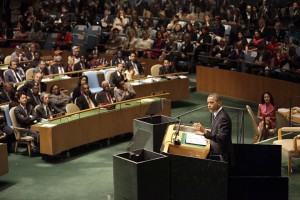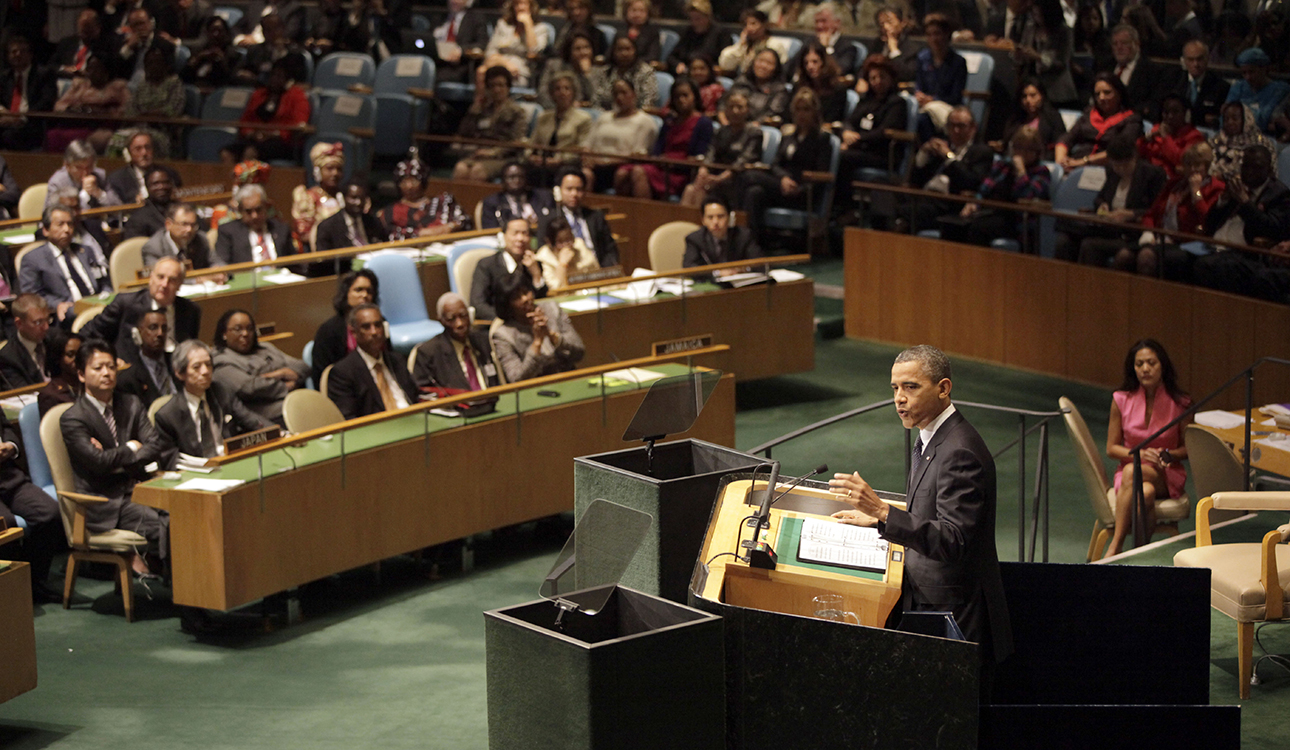
Associated Press
NEW YORK — The United States and the U.N.’s new Syria mediator grappled for a new strategy Tuesday toward stopping 18 months of brutal government crackdowns and civil war in the Arab country as President Barack Obama again called for the end of Syrian President Bashar Assad’s regime.
Secretary of State Hillary Rodham Clinton and Lakhdar Brahimi spoke for an hour on the sidelines of the U.N. General Assembly, according to a senior U.S. official, charting paths that might help unite Syria’s opposition and engineer a peaceful transition away from the four-decade Assad regime. Their talks came just hours after Obama told world leaders that Assad must leave “so that the suffering of the Syrian people can stop and a new dawn can begin.”
“In Syria, the future must not belong to a dictator who massacres his people,” Obama said. “If there is a cause that cries out for protest in the world today, it is a regime that tortures children and shoots rockets at apartment buildings.”
It has been more than a year since Obama first called for Assad to step down, but the violence has only swelled since. That has put his administration somewhat on the defensive as it seeks ways short of military intervention or arming Syria’s still little-known rebel forces to pressure the Syrian government into a peaceful political transition. U.S. officials say both those options would only worsen the crisis.
But all diplomatic efforts so far have failed, and Brahimi’s discussions with Clinton confirmed that neither the U.S. nor the global body has a clear plan at the moment for how to bring change to Syria.
U.N. Secretary-General Ban Ki-moon also demanded international action to stop Syria’s war, including stopping “flows of arms to both sides.”
Brahimi, a veteran Algerian diplomat who previously mediated in Afghanistan and Iraq, entered Syria’s complicated diplomatic landscape earlier this month when he replaced Kofi Annan.
Until recently, the United Nations and the Obama administration had stuck to a strategy outlined by Annan in June that would have seen Assad’s government and Syria’s opposition pick members of a to-be-established interim government, with each side able to veto candidates they oppose.
The plan was endorsed by the U.S. and Russia, U.N. Security Council rivals who’ve clashed repeatedly on how best to end the conflict. But it never got off the ground as violence only picked up through the summer and Moscow blocked a U.S.-backed resolution that would have created global consequences for inaction by the Syrian government. A frustrated Annan then announced he’d resign.
The U.S. president stressed, however, that more sectarian violence must not follow Assad.
“Together, we must stand with those Syrians who believe in a different vision,” said Obama, “a Syria that is united and inclusive, where children don’t need to fear their own government and all Syrians have a say in how they are governed — Sunnis and Alawites, Kurds and Christians.”






